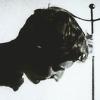With Reissue Campaign and Third Album, The Glands Finally Get Their Due
Friday, Nov. 9 @ Georgia Theatre

Photo Credit: Sean Dungan
There is a bittersweet mundanity to growing older in a college town. Few songwriters have conveyed this feeling as sharply as Ross Shapiro, the frontman of Athens band The Glands, who died from lung cancer in 2016 at age 53. In his sweetly skewed pop songs, Shapiro watched as his city swirled around him—as it changed and yet did not—the musician a still figure surrounded by trails of flickering light.
In their heyday, The Glands kept the local scene grounded. As a Bill Berry-less R.E.M. toured the world in support of the opaque Up, as Kindercore did its winsome indie-pop thing and Elephant 6 transmitted a mythical, magical vision of Athens, The Glands held it down for Classic City ennui with two understated full-lengths, 1998’s Double Thriller and 2000’s The Glands.
Despite their relative absence from the stage and a semi-official breakup in the mid-aughts, The Glands’ legend grew. When they reemerged to play shows, as they did from 2010–2012 and again in 2014–2015, it became clear that their appeal had endured. This week, New West Records issues an expansive Glands collection on CD, digital and vinyl, including remastered versions of the first two albums, as well as a third, Double Coda—a revelatory LP consisting of newly unearthed material from the band’s initial run.
It’s all packaged together in an impressive box set, I Can See My House From Here, along with a 52-page book featuring an essay chronicling the group's blue-collar formation and uniquely Athenian career course. The book includes tributes and remembrances written by everyone from the Drive-By Truckers’ Patterson Hood to Yo La Tengo’s Ira Kaplan to comedian David Cross. Two decades after they arrived—and two years after losing their enigmatic leader—The Glands are finally getting their due.
Double Thriller
Though Shapiro was known for his bristly demeanor, he was not quite the grump many perceived him to be. Instead, he could be tender in his mentorship. “His faux-curmudgeonly way was actually beloved by all who knew him,” reads Shapiro’s obituary. “In college, he worked at [Jewish summer camp] Camp Barney Medintz on the arts and crafts staff. A generation of campers remembers Ross for ‘yelling’ at them, but loved him just the same.”
Decades later, as the owner of Athens’ Schoolkids Records, the wry, graying Deadhead proffered strong but informed opinions to the youngsters (and oldsters) who stumbled into his downtown shop, many of whom were seeking the latest indie buzz-cut or major-label release but were soon turned on to something cool and obscure.
Shapiro quietly relished that dialogue. “Having a record store was great, because the patrons turned me on to far more than I could ever turn them on to,” he told Flagpole in a candid interview in October 2014. “It was like junk shopping—only, the junk was being brought to me.”
Double Thriller—first distributed in 1996 by the band and later issued by New Jersey label Bar/None—is the meticulous product of a person destined to become a record store clerk. The album takes The Olivia Tremor Control’s found-sound approach and runs it slapdash through an AM-rock filter, adding gratuitous doses of disco-sleaze (the wah-sick guitar on “Two Dollar Wine”) and atonal skronk (“Free Jane”) to keep things from turning too serious.
It gives only a passing nod to the prevailing local trends of the time, but it is unmistakably an Athens record. “Athens has very little music industry, and that breeds a certain attitude of thinking about what you’re doing artistically,” says longtime Glands drummer Joe Rowe, who befriended Shapiro while the two slung fries and feta at downtown institution Gyro Wrap at the tail end of the 1980s.
Even within the insular local community, The Glands insisted on carving out their own space. “I knew that we were never really part of Elephant 6,” says Rowe. “[But] I kind of liked not being attached to anything else other than just the band. And Ross was always a pretty private guy. He wasn’t really a joiner. He didn’t really like to be a part of any groups.”
The lack of scene attachments allowed The Glands to explore sounds and styles without fear of being excommunicated—or, God forbid, misconstrued. Though rough around the edges, Double Thriller can be bare, boisterous and, occasionally, downright gorgeous, as on “Skin,” an easy, arresting four-minute acoustic number that would prove to be a sign of things to come.
The Glands
As writer Stephen Deusner notes in his essay for I Can See My House From Here, somewhere near the turn of the century, The Glands became a full-fledged band. The project had always been an outlet for Shapiro’s various impulses. Membership ebbed and flowed, with Rowe a constant. But where Double Thriller was the weird, concave result of hours of solo tinkering, The Glands, which found an unlikely home on legendary but doomed Macon imprint Capricorn Records, saw the songwriter seeking connection through rock and roll.
“Livin’ Was Easy,” the opening track, is the prototypical Glands tune. A love letter to Athens and a lampooning of its storybook image—a cozy, jobless fantasyland bursting with endless creative energy—the song exudes townie ambivalence in its now-iconic chorus: “Why did I go?/ The livin' was easy/ I had a room of my home/ And the weather so warm.”
The Glands is more streamlined than Double Thriller. Still, it’s full of surprises. Shapiro goes full Macca on “Swim,” a bouncy, magnetic track that stands as the group’s most unabashed foray into pop. Rollicking single “Straight Down” finds the band in mid-season form, with Rowe providing a crisp backdrop for bassist Craig McQuiston’s inventive runs and a fiery solo from guitarist Doug Stanley. “I Can See My House From Here” centers on a Four Seasons crib so blatant and pure, the listener doesn’t know whether to laugh or dance.
The self-titled outing is Shapiro’s crowning achievement: drenched in melody, stylishly nonconformist, fluid to the point of feeling weightless. It should have been The Glands’ breakthrough—and it kind of was. They landed opening gigs for bigger acts like The Shins and Modest Mouse, spreading the album’s neoclassic-rock gospel across state lines.
“We were fortunate enough to get a good booking agent, so we were able to tour some. We always played out of town a lot more,” says Rowe. “We never played in Athens that much.” That was partly, Rowe adds, because “Ross was kind of difficult. He wasn’t happy going to a regular club and playing a regular show. He always wanted to do something weird.”
Indeed, The Glands continued to follow their frontman’s whims. Rather than exploit momentum created by the self-titled LP by continuing to tour or cranking out a follow-up, Shapiro opted to retreat. Recording technology had advanced, and The Glands’ principal spent caffeine-fueled chunks of time experimenting—aimlessly, it seemed—in his Normaltown home studio with engineer friends Andy Baker and David Barbe.
Yet Rowe, who jokes that the studio presented “maybe not enough limitations” for an obsessive musician like Shapiro, says no one in the group resented Shapiro’s disinterest in pursuing indie-rock stardom.
“I always feel like everything we worked on together as a band is all kind of the same thing and comes from the same place,” Rowe says. “It’s cliche, but that’s what it was about for us: getting together and making music.”
Double Coda
When The Glands resurfaced for the last time, in 2014, it was big news in Athens. Pre-sale tickets for a show at Lumpkin Street haunt Green Room disappeared in hours. The attention came as a surprise to Shapiro, who told Flagpole it was “flattering if people are interested,” adding that the band’s third album was not only in the pipeline, but almost done.
The sprawling setlists from the group’s handful of concerts that year and the next featured a trove of unreleased material, much of it new and never before heard. But some of it had existed for decades, dating back to the days of Double Thriller and beyond. In fact, for years, Shapiro had been sitting on well over an album’s worth of mostly finished recordings.
Why that work had never seen release was unclear. “Every once in a while, the band members would bug Ross about it, but it never happened,” says Rowe. “It’s kind of a mystery why Ross could never bring himself to put anything [else] out.”
Rowe points to Shapiro’s quixotic search for perfection—“He constantly reworked stuff. He would come up with like five different vocal melodies and words for one song”—as well as his disdain for the industry politics that he saw as having prevented The Glands’ first two albums from reaching a larger audience.
“He kind of got burned a bit with the first two records,” says Rowe. “We seemed to be getting a pretty good reception from folks for the self-titled record, so we thought we’d be able to find a home for another record… It wasn’t for a long time until [we] realized that, ‘Oh, when you put out a record, it helps to have an angle—some kind of story to promote it. Like, somebody’s in rehab, or somebody’s sober, or somebody died.”
That point stings given the tragic impetus for Double Coda, which is culled from sessions spanning the years 1996–2003. (Though Shapiro had indeed been planning an album of all-new music, the project was largely incomplete when he died.) Yet The Glands’ final LP is exploratory, even playful, a jubilant departure from the first two full-lengths’ artful restraint. One wonders if Shapiro held this music back for so long because the person Rowe describes as intensely self-doubting felt it was too unguarded, too free.
The 23 tracks on Double Coda were chosen and polished up by Rowe, Barbe and former Gland Derek Almstead, and represent the most album-ready discoveries from Shapiro’s vast archive. Naturally, they’re all over the map. Some, like the utterly lovely “Sadie Song,” are fan favorites that had previously floated around as bootlegs. Others feature electro flourishes (“Electricity”), turntable breakdowns (“Atmosphere”) and Spanish-language balladry (“Rose,” with guest vocals from Producto vocalist Ane Diaz). There’s a deadpan Brubeck parody titled “Piano Jazz,” because of course there is. (It’s among the record’s most affecting tracks, because of course it is.)
A messy but significant compilation, Double Coda functions as both primer and retrospective. “When I hear certain songs, it takes me back to a certain time and place,” says Rowe. “But then there are other songs that I don’t even remember working on, because it’s been so long.”
For Glands fans, it’s thrilling that this music has finally been released, and that the band is, improbably, back in the spotlight once again. Still, a loaded question lingers: What would Shapiro think of it all?
The likely answer: not much. In his essay, Deusner recalls a typical conversation with a Shapiro confidant. “‘What you’re doing,’ says his close friend Dutch Cooper, meaning this box set, meaning these liner notes, meaning this attempt to tell his story, ‘Ross would have hated it.’”
Yet for Rowe and other remaining band members and associates, the reissue campaign is a long-awaited opportunity to share the band’s music with a new generation, as well as a chance to move on, creatively and emotionally. It’s also, in a rather Glandsian twist, a bittersweet reminder of what was and what could have been.
“I miss Ross a lot,” Rowe says. “And I think it’s great to have this stuff out now, but I wish that we had pushed Ross more than we did when he was alive. Because all of this stuff that’s coming out on Double Coda was done way before Ross passed away. I just think it’s a shame that we couldn’t do it with him.”
Correction: This article has been edited to reflect the fact that Glands members Craig McQuiston and Doug Stanley played bass and guitar, respectively, on "Straight Down."
Calendar
-
Friday, November 9
Georgia Theatre
The Glands Listening Party
Hear the Athens band's long-awaited third album and celebrate the release of the I Can See My House From Here box set. See story on p. 10.












comments